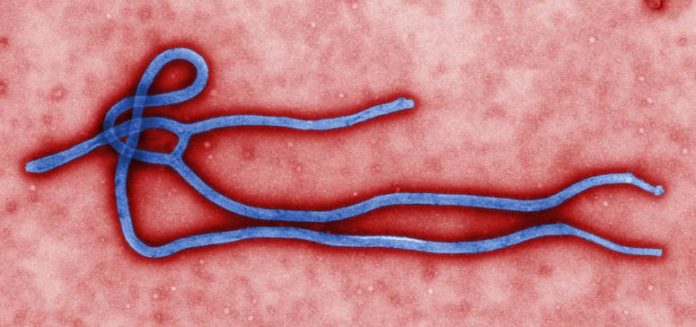With cases of Ebola moving from Texas outward, Slippery Rock administration plans and prepares to tackle the virus in the likelihood of Ebola spreading to campus.
Ebola hemorrhagic fever, better known as Ebola, was first discovered in 1976 near the Ebola River in Africa. The natural cause of the Ebola virus still remains unknown, although researchers from the Centers of Disease Control and Prevention believe that bats are the main cause of the disease.
The most recent cases of Ebola have been seen in Texas. According to the Centers of Disease Control and Prevention, on Oct. 10, a healthcare worker in Texas provided care for a patient and shortly after reported a low fever. When the worker was referred for testing, the worker tested positive for Ebola. The healthcare worker was isolated and still remains isolated.
A recent mass communications email was sent out to the university detailing the virus and how SRU is prepared for the virus in a rare case that it does start to formulate on campus.
Kristina Benkeser, director of student health services, stated that the likelihood of the Ebola virus spreading onto campus is extremely low. She expressed that the universitie’s suspicion, however, is very high.
“Ebola carries a very high fatality rate, which is why I think people are so scared of it. It’s scary and it’s unknown. There have been very few cases of Ebola within the United States. We have to balance what we know,” Benkeser said. “While the absolute risk is considered to be very low, our suspicion is high because what you want to do is to try and stop the disease from moving forward. Once we identify active diseases, we want to stop that transmission from going out to other people, so it’s like putting the big safety brakes on it.”
One of the many ways that Slippery Rock University plans to prepare for an Ebola outbreak is by the efforts of the Ebola Task Force here on campus. Benkeser explained that the Ebola Task Force includes student health services, environmental health and safety, and representatives from international services. The task force is overseen by Amir Mohammad, who is the administrative lead for the board. According to Benkeser, the board meets regularly, communicating several times throughout the day.
“I think there might be a perception that we just kind of got together in a hurry a couple of weeks ago when all this happened in Texas, and that’s not true. We’ve been working with the Ebola issue since late July, early August,” Benkeser said. “Just because people don’t necessarily read or see it, it is happening. The university has been very on top of it.”
Benkeser said that one myth that she would like to address about Ebola is that some people think that the disease is easy to get. Ebola is not an easy virus to catch because it’s not spread through breathing. The way that you contract Ebola is to have direct contact with an infected person’s blood or other bodily fluids or the remains of someone who has passed from Ebola. Also, there is a 21-day window from exposure to Ebola until someone catches the disease, Benkeser explained.
Although Ebola needs severe medical attention, there are several basic practices that students can do to prevent illness. Paul Novak, director of environmental health and safety and emergency management administrator expressed that the best thing to prevent illness is frequent and efficient hand-washing.
“Studies have shown that people who embrace and practice frequent hand-washing really reduce their risk of attracting any kind of disease,” he said.
Novak also explained that the university has made sure to increase the use of hand sanitizer products in buildings and in the restrooms to further enhance health safety. He also mentioned that basic hygiene practices, rest, and keeping hydrated can prevent illness.
Benkeser expressed that one main way that students can prevent illness and possibly Ebola is to get a flu shot. Students can go to the McLachlan Health Center at any time of day to get their free flu shot.
If a student feels as though they have came into contact with the Ebola virus, Novak said the first thing that the student should do is contact health services.
“The first thing the nurses will look for is to see if your body temperature is elevated. A student who feels that they have Ebola should limit their interaction with other people and be compliant with every guideline that every physician gives you,” Novak said.
According to Novak, the university is clearly aware of the seriousness of Ebola and are planning to do everything to prepare for it.
“The university is clearly aware of the situation going on and we are responding to it. Emergency planning and preparedness is very much alive at Slippery Rock University,” he said.








